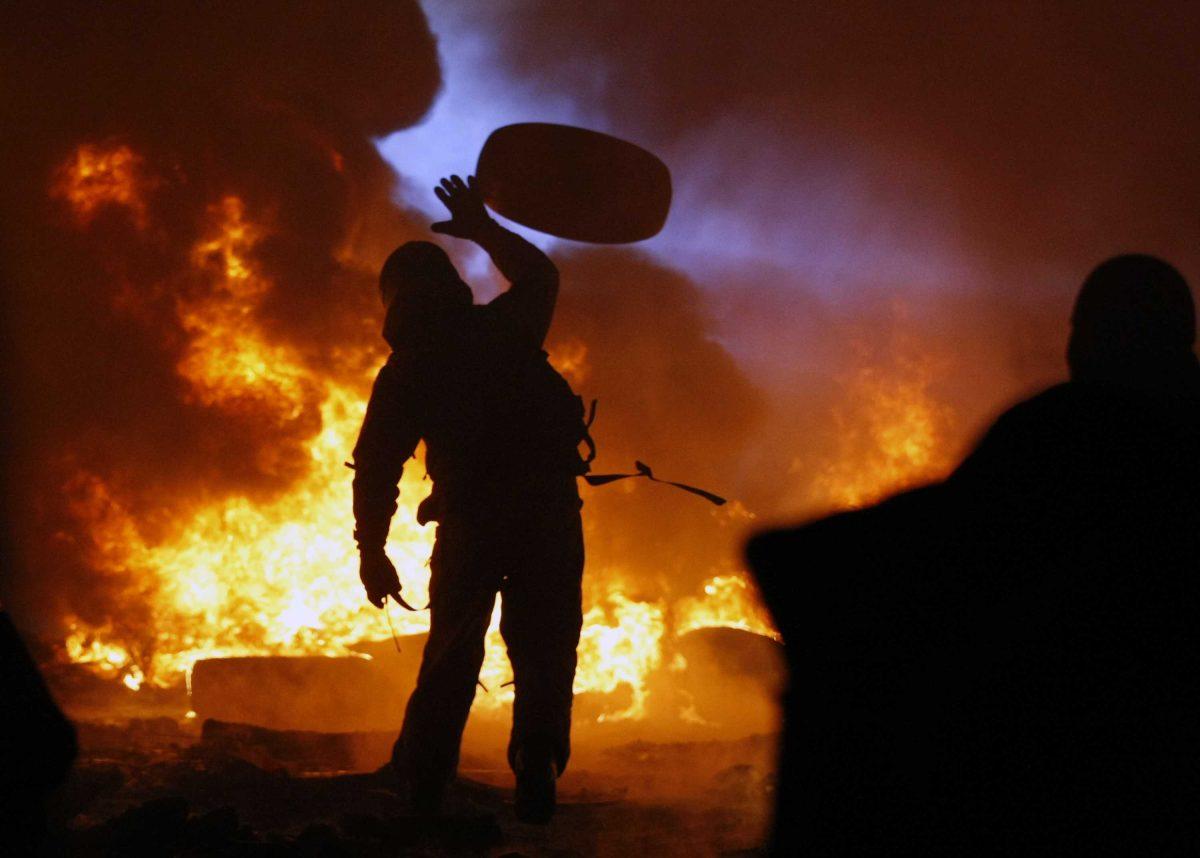People in positions of leadership and influence are expected to act decisively in times of crises. However, imagine if during the snow days, President F. King Alexander didn’t show up to work, only giving the explanation that he was sick and refusing to delegate authority to a subordinate.
At the end of January, that is exactly what happened in Ukraine. On Jan. 30, President Viktor F. Yanukovych cited a respiratory illness and went on sick leave.
Normally, this would not be an issue. The problem is Ukraine has been in the throes of severe civil unrest since November, coming closer and closer to civil war.
Last November, Yanukovych backed out of a potential trade deal with Europe, and instead accepted a $15 billion loan package from Russia. This decision sparked months of protests and riots in Western Ukraine, particularly Kiev, which is nationalistic and pro-west.
Since then, there has been a tense standoff between the government, led by Yanukovych, and the opposition, led by former boxer Vitali Klitschko, who is the head of the Ukrainian Democratic Alliance for Reform.
Klitschko, in his own words, is demanding “a full reset of power and this system.” He wants complete opposition control of the government, including authority over riot police, who have been confronting protesters in various clashes for the past few months, resulting in six deaths.
While he has since returned after four days of sick leave, Yanukovych’s actions may have irrevocably damaged the current government’s credibility to lead Ukraine and has given unprecedented legitimacy to the opposition. Were President Alexander, or any other high-level administrator to take similar actions, they would be promptly sacked and shunned from academia.
Before he went on leave, Yanukovych was due to sign a law that repealed draconian anti-free speech restrictions passed earlier in January. His “illness” was viewed by most as a cop out to avoid signing the bill, which was passed by parliament on Jan. 28.
Even worse, Vitaly Portnikov, a prominent opposition journalist, as reported by Andrew E. Kramer of The New York Times, suggested on his Facebook that Yanukovych’s sick leave was merely a prelude to a coup d’état. Portnikov wrote, “I remember well that on the 19th of August, 1991, the vice president of the USSR, Gennady Yanayev, announced a serious illness of Mikhail Sergeyevich Gorbachev.”
The very next day, hardliners in the Kremlin attempted a coup to save the Soviet Union, which ultimately failed, leading to the collapse of the USSR.
Creating this sort of doubt in the stability and intentions of the Ukrainian government is exactly what the opposition needed. Nothing screams “corruption” more than a head of state overtly avoiding expanding freedoms of speech and assembly, especially in a country claiming to be democratic.
In the wake of his decision to resume his role as president, several European and American lawmakers now suggest that targeted sanctions be put in place to quell the violence in Kiev. This only further serves to put the government in a vise, giving even more legitimacy to the opposition.
With the root of the cause being Mr. Yanukovych’s allegiance to Moscow and Russian President Vladimir Putin, you would assume he would have the good sense to bow to the wishes of his countrymen and align Ukraine more with Europe.
However, there is a fear that even if Ukraine decides to move toward Europe, Russia may have something to say about it.
As reported by The Daily Beast, the phrases “Anschluss,” or annexation, and “the Ukrainian Question” are being thrown around fairly liberally by hard line political scientists and leaders alike, making the Kremlin sound more like the German Reichstag, circa 1938.
LSU, unlike Ukraine, is blessed with competent leadership that, even on our worst days, acts in our best interests. Hopefully, Yanukovych will begin to appease his own people instead of Moscow and drop the hard line act.
Ryan McGehee is a 21-year-old political science, history and international studies major from Zachary.
Opinion: Ukrainian, Russian governments giving opposition legitimacy
February 6, 2014
A protester throws a tire onto a fire during clashes with police in central Kiev, Ukraine, Friday Jan. 24, 2014. As riots spread from Ukraine’s embattled capital to nearly half of the country, President Viktor Yanukovych promised Friday to reshuffle his government and make other concessions — but a top opposition leader said nothing short of his resignation would do. Hours after the president’s comments, huge fireballs lit up the night sky in central Kiev and plumes of thick black smoke rose from burning tires at giant barricades erected by protesters. (AP Photo/Darko Vojinovic)
More to Discover








